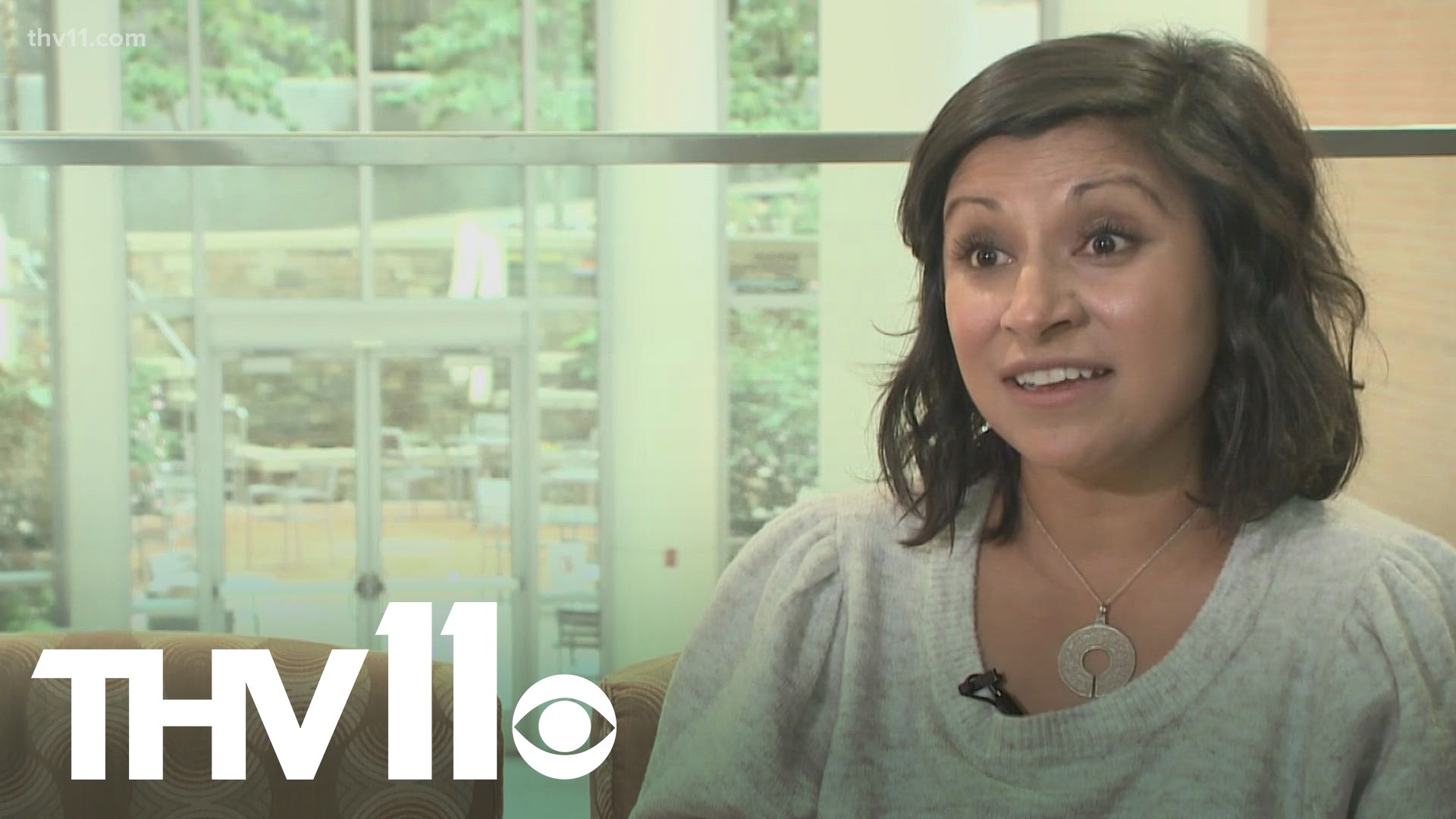LITTLE ROCK, Ark. — This holiday season means more than usual for an Arkansas mom.
Over the past couple of years, she has been recovering from treatment for breast cancer and so far, remains healthy.
This month, we visited with Richa Thapa, a psychiatrist, wife, and mother, who said she almost skipped her annual physical exam back in 2020.
She credits her intuition for prompting her to schedule an appointment, even though the COVID pandemic was rampant, and she was a working mother of two young children.
While she had a sense that something might be wrong, she said a diagnosis of breast cancer was not what she had envisioned.
“I was shocked. I was scared. I was everything that you could imagine. I felt a lot of emotions", said Richa.
She said she remembers feeling uneasy, watching her doctor’s face during the exam. According to Richa, the doctor “just got quiet."
"She kept on feeling this one area and she's like, 'there's something in there. I'm not too worried. But let's get a mammogram,’" Richa said. "I was 36. I was like, that's when the panic set in.”
Richa's diagnosis turned out to be a far less common and typically more aggressive form of cancer, called Triple-negative breast cancer (TNBC).
It's a form of cancer that Martin Cannon, professor of microbiology and immunology at UAMS, is knowledgeable about.
Cannon is familiar with the tumor markings that differentiate Triple-Negative breast cancer and conducts research on both ovarian and breast cancers.
"Triple-Negative means that the tumor cells are negative for three key receptors of estrogen, progesterone, and HER-2," he said.
According to Cannon, without those three receptors present, options for successful treatment are fewer.
Richa admits she knew little about cancer categories but had learned enough to know that hers was a serious one.
“I did not know what it was. I honestly thought all breast cancer was breast cancer and it was all treated the same way. I felt very clueless," she said. "I did keep on hearing people say 'oh, you don't want the triple negative’, and I was like, 'oh, okay, that's what I had.'"
Richa’s treatment was one that included radiation and surgery. Now, two years later, she said she's feeling great and has also discovered the power of yoga and meditation.
She said she feels immense sympathy for other women who may only be starting their journeys through the unknown.
Her advice is to stay connected to women who understand what it’s like to have breast cancer rather than keep those feelings to yourself.
"I can do well. They did well. And it gave me motivation. So just reach out. My purpose now is to help other women who are going through really any type of cancer. Just know you're not alone”, she said .
According to the American Cancer Society, Triple-Negative breast cancer represents 10% of overall breast cancers.

